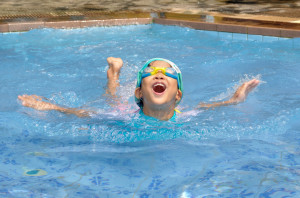From softball games to swimming lessons, summer is the most fun and most active time of the year. The flip side is that increased activity means increased opportunities for sports related injuries, especially those affecting the joints and bones. Minimize the risks for your family with these tips.
Schedule a Physical
While most school sponsored teams require players to have an annual physical, less formal summer leagues may not. A physical is important to assess injury risk and pinpoint any particular areas to be aware of–for example, a weak ankle or knee. For example, sometimes participants suffered minor injuries in childhood which did not seem to require medical treatment, but which nonetheless can affect future performance.
Use the Correct Equipment
Informal summer games can be more lenient about equipment and uniforms. Always make sure your child is using appropriate, functional equipment, especially protective gear (i.e. shin guards, knee pads) and footwear (cleats for sports like soccer and softball, etc).
Be Aware of the Playing Conditions
Check out the field, court, track, etc. your child is playing on. Help clear the field of garbage and debris, or contact the league organizer for more challenging risk factors, like potholes.

Don’t Run At The Pool
In general, it’s always important to follow the rules of the sport and the venue. This is especially true at the pool. Although swimming laps is a fairly low impact activity for joints, running on wet tile and diving or jumping into shallow water can lead to terrible accidents.
Keep Hydrated
If you wait until you’re thirsty, your body is already at risk for dehydration. Be mindful of other symptoms, such as grogginess or disorientation, that can also increase susceptibility to injury. Keep a reusable water bottle handy and never miss an opportunity to top if off.
Be a Good Coach, but a Better Listener.
Sports can be great for building self esteem and resilience. However, a child should never be encouraged to “play through the pain.” Take all complaints of injury seriously within reason, and work with your child to develop systems for assessing pain. Ask questions, and respond with compassion.
Lead By Example
Kids aren’t the only ones who are more active in the summer. If you have an accident, don’t glorify toughing it out–seek medical attention.







